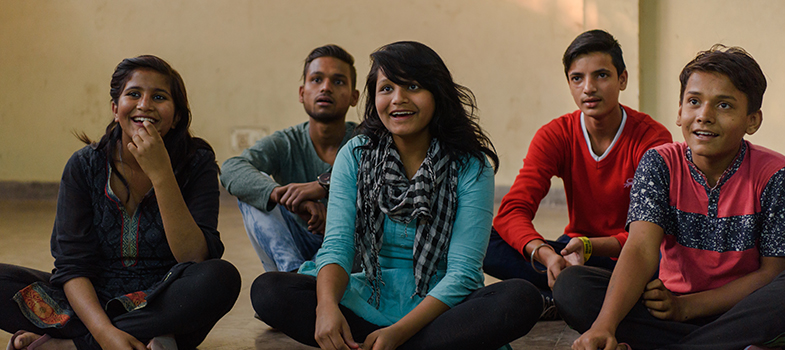6.1 Did you know?
This first activity is for you to do yourself, to help you prepare for CSE sessions.
Activity 6.1: Test your sexual knowledge: Did you know?
This activity is in the form of a simple quiz to test what you already know about sex. Answer the following four questions:
a.
18%
b.
25%
c.
54%
d.
82%
The correct answer is a.
Answer
Scientific studies regularly show that vaginal intercourse without clitoral stimulation does not lead to orgasm for the majority of women.
One recent large-scale study found that only 18% of women said that vaginal intercourse alone would lead to orgasm, whereas 36% of women reported that they needed clitoral stimulation as well to experience orgasm and a further 36% reported that their orgasms felt better if their clitoris was stimulated (Herbenick et al., 2018).
Many women mentioned 'spending time to build-up arousal', 'having a partner who knows what I like', and 'emotional intimacy' as techniques which enhance their orgasms. Another study showed that men more often experience orgasm from sex than women. However, it also showed that women in same-sex relationships experience orgasms more often than those in different-sex relationships (Garcia et al., 2014).
Discussion
It’s really important for a woman’s partner to know what she wants sexually and what turns her on. The chances of finding out what our partners like by accident is slim. It’s much better to talk about it. It’s also important to remember that people can experience sexual pleasure without having orgasms.
a.
No
b.
Yes
The correct answer is a.
Answer
No! Men can ejaculate without feeling the pleasure of orgasm and have an orgasm without ejaculating (Masters and Johnson, 1966).
Discussion
An ejaculation is not the same as an orgasm, but often they occur simultaneously.
a.
Higher than this?
b.
Lower than this?
The correct answer is a.
Answer
It is very hard to get reliable information about this because people don’t always reply truthfully to questions about porn use, even when they are anonymous.
Whether young people have watched porn will also vary depending on the region or country, as well as on an individual’s gender, age, background, access to a mobile phone, and other personal characteristics.
However, we do know that rates of porn use by young people are growing all over the world – for example, a study of young people in Nordic countries undertaken as long ago as 2006 found that 99% of boys and 86% of girls had watched porn by the age of 14 (Sørensen and Knudsen, 2006).
So it is probably safe to assume that most Indian young people these days will have seen porn before their first sexual experience with another person.
Discussion
Porn can be fun – people can use it to get aroused or to find out about different sexual practices. But it can also portray negative stereotypes about ‘masculine’ and ‘feminine’ desire and place unrealistic expectations on young people about what ‘good’ sex is.
It’s really important to be able to tell the difference between the fantasies in porn and real life.
a.
No
b.
Yes
The correct answer is a.
Answer
No. Ideally, sex should be about giving – and receiving – pleasure, but this isn’t always the case.
Sometimes people consent to sex within a long-term relationship even though they don’t feel desire (Vannier & O’Sullivan, 2010). Some people report never experiencing pleasure from sex. In one large scale UK study, 0.5 % of respondents reported that they had never experienced sexual attraction to anyone (Bogaert, 2012) – some of these people might describe themselves as ‘asexual’.
Discussion
Physically there are all kinds of things that may stop people experiencing pleasure during sex, such as erectile dysfunction or painful intercourse. Also, people with some disabilities may need additional tips and practice to find ways to feel pleasure from the physical aspects of sex.
Being unhappy in a relationship, or social and cultural norms, can also stand in the way of experiencing sexual pleasure. The expectations that “women should be inexperienced and reject approaches” and that “men should always want sex and be experienced” can place severe pressure on young people.
Being educated about the positive elements of physical sexual activity can have a major effect on young people’s confidence and self-esteem and, consequently, their attitude toward sex.
Introduction

